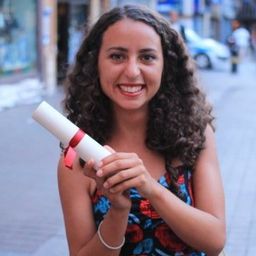Defining the Migrant Heritage Community: An Exploration of Cultural Heritage Actions Towards Migrants, Refugees and Asylum Seekers in Newcastle-upon-Tyne, UK
While Europe witnesses the rise of nationalist politics and Britain recently started negotiating the conditions of its exit from the European Union against a background of sectarian narratives, numerous cultural initiatives have flourished in the UK and elsewhere that intend to counter these tendencies and reinvent the meanings of culture and heritage through intercultural dialogue (Innocenti, 2016).
Traditional cultural heritage actors such as museums, archives and libraries play an important role in this development but are not the only protagonists: many of these projects are led by civil society organizations that may work with cultural institutions on punctual collaborations or in complete independence (Roued-Cunliffe & Copeland, 2017). These community-based initiatives are guided by the will to change the local heritage landscape. They can be recognized as “heritage communities” which, as defined by the Faro Convention, aim to provide migrant communities with the opportunities that shall come with their “right to benefit from the cultural heritage and to contribute towards its enrichment” (Council of Europe, 2005).
However, these heritage communities possess a peculiar and rather problematic property: they are migrant, a term that does not refer to a homogeneous reality but to people who have distinct social, economic and cultural backgrounds, and who consequently do not possess a common heritage.
Yet, this paper will argue that acknowledging the concept of “migrant heritage community” allows for defining notions of community and heritage that can promote social inclusion at large.
This paper will present the results of a pilot study that combines information science and cultural heritage in order to explore the cultural actions towards migrants, refugees and asylum seekers taking place in Newcastle-upon-Tyne (UK). This dual approach allows for an analysis of both the specific information needs of the local migrant community and of their impact on the negotiation of identity across their various stages of integration. This examination will nourish a discussion on the validity, modality and benefits of the concept of “migrant heritage community.”
It will first be seen that the notion of “migrant community” forces us to redefine identity and heritage beyond categories such as nationality, ethnicity or religion, and to conceptualize them as both global and local by essence, thus shifting the focus on the definition of migrants from “coming from elsewhere” to “being here.”
Secondly, the heritage that unites the community in this context does not correspond to a common resource but to a common value given to a type of heritage that is expressed in different ways.
Finally, civil society organizations, contrary to cultural institutions, do not work primarily with collections. Thus, their conception of heritage focuses on “making” rather than “preserving”. These expressive heritage activities have a benefit: they function as “information grounds” (Pettigrew, 1998). Therefore, it will be seen that they do not only foster a sense of belonging and recognition but also provide participants with capacities that allow them to participate more actively in the local society, consequently promoting social inclusion at large.
